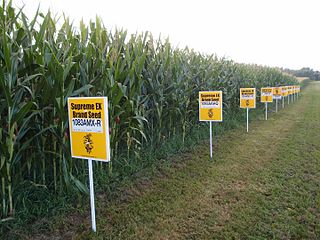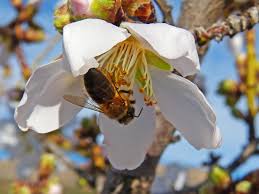Reforming The Corn-Ethanol Mandate
The Planning and Conservation League as part of a national effort by the National Wildlife Federation is working to reform the corn-ethanol mandate in the federal Renewable Fuel Standard.
When Congress created the Renewable Fuel Standard (RFS), it was with the worthy intent of incentivizing homegrown, renewable fuels that reduce America’s dependence on fossil fuels and decrease the amount of greenhouse gases in the atmosphere. Unfortunately, it has become clear that the RFS has had unintended consequences on the landscape that have been devastating for wildlife and wildlife habitat, and may even be undermining its own stated goals. A nationwide study from researchers from the University of Wisconsin, for instance, found that over 7.3 million acres of land — mostly grasslands — were converted to crop production between 2008 and 2012. While the RFS alone did not cause these changes, it was one of the biggest drivers that led to the massive destruction of habitat on the landscape.
While the increased planting of corn for ethanol and soy for biodiesel has led to habitat destruction and water quality impacts, the next generation of cellulosic biofuels (those made from grasses, trees, and wastes) could result in much more positive environmental outcomes. Given that the RFS as currently constructed has not led to the expansion of cellulosic biofuels at nearly the pace envisioned by the law’s backers, changes must be made to place greater emphasis on supporting the development of these promising but still developing technologies and feedstocks, while de-emphasizing the production of ethanol and biodiesel and trying to mitigate their effects on the landscape. In recognition of the impacts to soil, water, and wildlife, there must be meaningful enforcement or strengthening of the habitat safeguards that are currently in the RFS but are not being implemented – as well as a greater commitment to habitat conservation in order to mitigate the negative effects of the expanded, intensified agriculture that has been fueled, in part, by the RFS mandate.
CALIFORNIA IMPACTS FROM CORN ETHANOL PRODUCTION AND USE
The Renewable Fuels Standard (RFS), turned 10 last December. This federal policy requires ever-increasing the amounts of plant-derived fuels to be blended into domestic gasoline. The federal policy’s noble aspirations have never materialized—and in reality, it has led to serious harms for our environment. Growing corn for ethanol has caused the loss of huge swaths of wetland and grassland habitats – and plowed under millions of acres of land that California’s bees depend on for summer forage when they are not pollinating crops. Commercial bees are essential to pollinating billions of dollars’ worth of crops and employing tens-of-thousands of Californians growing almonds, alfalfa, melons, citrus, avocados, and sunflowers. Increasing the use of corn-ethanol will also impact California’s air quality and contribute to increased levels of ground-level ozone – which we all call smog. Additionally, the effects of the corn ethanol mandate have increased the price of corn feed for our dairies and ranches, led to ethanol-related damage to small motors in boats, recreational vehicles, and yard equipment engines, and harmed California’s economy by increasing fuel costs and damaging the recreation industry through reduced wildlife habitat, especially for waterfowl like ducks.
 The Problem with the current RFS
The Problem with the current RFS
In its current form, the Renewable Fuel Standard provides incentives to convert natural areas and wildlife habitat to large corporate farms.
- Since the ethanol mandate was enacted, more than 7 million acres of wildlife habitat and natural areas have been converted to crops, mostly corn for ethanol.
- Fewer than 5 percent of native grasslands remain.
- Ecologically important areas like the Prairie Potholes region – one of the prime habitat for ducks across the country – have seen the most intensive destruction of habitat.
This has led to water pollution-reducing supply and threatening public health – and destruction of habitat for wildlife and important pollinators such as bees and butterflies.
Expanded and intensified farming means more pesticides, chemical fertilizers, and erosion.
- Farm run-off has fueled serious impacts like toxic algal blooms in Lake Erie, which in 2014 poisoned drinking water for more than 400,000 people for three days.
- Farm run-off has also contributed to the Gulf of Mexico’s “dead zone,” an area considered unfit for most aquatic life.
- Monarch butterfly populations have declined almost 90 percent, due in large part to the loss of grassland habitat.
- Irrigation – often in marginal farmland – depletes aquifers faster than they can replenish, threatening water supplies.
There is a set of common-sense reforms that work for family farmers to protect public health and the environment – keeping us moving forward on our clean fuel goals the right way. The Planning and Conservation League along with our partners at the National Wildlife Federation and others are seeking to:
- Promote biofuels made from sources other than corn.
- Charge a small fee to oil companies and refiners to fund habitat restoration and conservation.
- Prohibit converting native wildlife habitat into cropland to grow corn for ethanol, a law already on the books.
- Limit the share of ethanol made from corn that can be used to meet renewable fuel targets.
 Solution Reforming the Corn-Ethanol Mandate
Solution Reforming the Corn-Ethanol Mandate
We must reform the federal corn-ethanol mandate to protect clean water and public health. In its current form, the RFS provides incentives to convert natural areas and wildlife habitat to large corporate farms growing GMO corn. This has led to water pollution – reducing supply and threatening public health – and destruction of habitat for wildlife and important pollinators such as bees and butterflies. There is a set of common-sense reforms that work for family farmers to protect public health and the environment – keeping us moving forward on our clean fuel goals the right way.
HR 5212 the GREENER Fuels Act by Representative Peter Welch (Dem-Vermont) is a home run: It includes common-sense solutions to reform the Renewable Fuel Standard and reverse damage caused by the ethanol mandate.
- The bill immediately reduces the amount of ethanol in our fuel by placing a firm cap on the blend level of 9.7 percent. (The fuel mix is currently slightly higher than 10 percent.)
- The bill winds down the corn ethanol mandate. Beginning in 2023, after the current statutory volumes end, the bill steps down the amount of ethanol in the nation’s fuel supply. Instead, the bill sets the stage for a transition to more sustainable plant-based fuels that are better for the environment and will help confront climate change.
- The bill prevents the expansion of E15 (gasoline that is 15 percent ethanol) since studies have clearly shown that increased use of ethanol in gasoline leads to higher smog levels, particularly in heavily populated areas.
- The bill provides funding to reverse the vast habitat damage over the last 13 years by investing more than $10 billion over 10 years to restore wildlife habitat that has been converted to crops and to prevent further habitat from being destroyed.
- The bill protects wildlife habitat by enforcing existing land protections that are supposed to prevent converted land from qualifying as a source of biofuel material.
- The bill helps confront climate change by eliminating a loophole that allows older biofuel plants to skirt climate pollution standards, halting the conversion of habitat for biofuel, and incentivizing advanced biofuels that lower climate-disrupting pollution in our fuel supply.
- The bill prevents harmful or invasive species to be used as fuel.
- The bill protects our health, drinking water, wildlife, and economy by halting the destructive land-conversion practices driven by the ethanol mandate and helping transition to cleaner more sustainable fuels that support clean water and healthy habitat and helping reduce climate-disrupting pollution.
We urge federal public officials to support and pass these bills.
- The GREENER Fuels Act is a huge step in the right direction.
- The legislation provides solutions that are sorely needed: Conversations in the U.S. Congress and White House in recent months have failed to explore Renewable Fuel Standard reforms that address the serious impacts the law has had on the environment, drinking water, wildlife habitat, and climate.
- This legislation is the first comprehensive attempt to reform the Renewable Fuel Standard.
- The legislation would be a huge win for the environment and needs to be supported by U.S. House and Senate members.
- Leaving the current law in place threatens to make the problems worse and more costly to solve.
DONATE TO PCL TO HELP SPREAD THE WORD
ENDNOTES:
1 Searchinger et al, 2008. Science. “Use of US Croplands for Biofuels Increases Greenhouse Gases Through Emissions from Land-Use Change.”
2 Lark, et al, 2015. “Cropland expansion outpaces agricultural and biofuel policies in the United States.” Environmental Research Letters 10, 4.
3 Economic Research Service. http://www.ers.usda.gov/topics/farm-economy/bioenergy/findings.aspx


